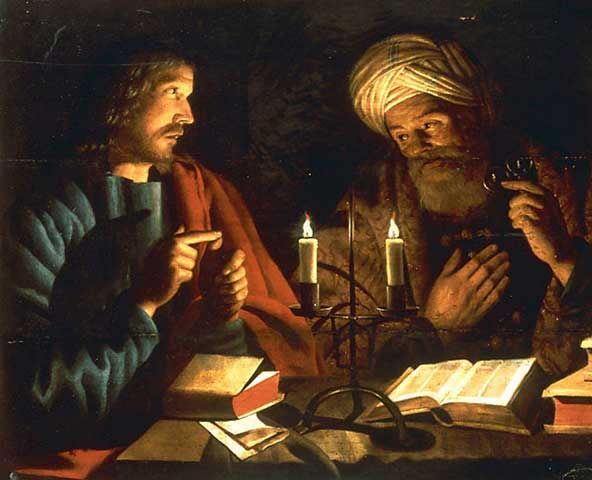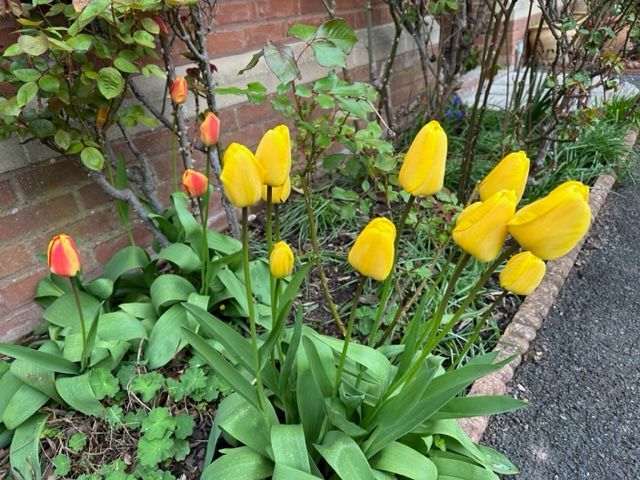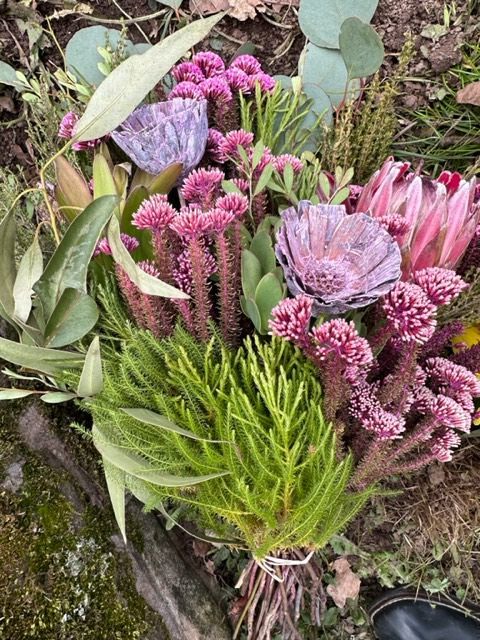Message of Abbot Paul - Monday 17th April 2023
Abbot Paul • April 16, 2023

Yesterday we concluded the celebration of the Octave of Easter, that ancient Judaeo-Christian custom of celebrating an important feast for eight days. There was a time when the Church celebrated many Octaves, such as Christmas, the Epiphany, Easter, Pentecost and the Assumption, for example, but today we only keep two Octaves, those of Christmas and Easter. It fascinates me to see how we, as Christians, spend time celebrating and enjoying festal seasons, while the world around us moves on very quickly and soon forgets that Easter or even Christmas ever was. All that seems to matter is the commercial aspect of the feast and not that we should celebrate or meditate on the great mystery that we commemorate. It’s only Lent that seems to escape commercialisation, with the sole exception of hot cross buns., which, of course, are now available in our supermarkets all the year round.
Today, then, Monday in the Second Week of Easter and we begin reading John’s Gospel at Mass each day, those sections that were probably not read during Lent. We start at Chapter 3, verses 1 to 8, the visit of Nicodemus to Jesus. “There was one of the Pharisees called Nicodemus, a leading Jew, who came to Jesus by night and said, ‘Rabbi, we know that you are a teacher who comes from God; for no one could perform the signs that you do unless God were with him.’“ Nicodemus will reappear with Joseph of Arimathea after the crucifixion, when they ask Pilate for permission to bury the body of Jesus. Here we learn that he is a Pharisee and a leading Jew and obviously a secret admirer of Jesus, recognising him to be a teacher, a rabbi, come from God. Jesus replies, “I tell you most solemnly, unless a man is born from above, he cannot see the kingdom of God.” Although our translation has “born from above”, the Greek word can also be translated as “born again.” This accounts for Nicodemus’ answer, “How can a grown man be born? Can he go back into his mother’s womb and be born again?” Is it possible to be born a second time?
Jesus’ reply is similar to teaching we will hear many times from his lips in the course of the Gospel. “I tell you most solemnly, unless a man is born through water and the Spirit, he cannot enter the kingdom of God: what is born of the flesh is flesh; what is born of the Spirit is spirit. Do not be surprised when I say: You must be born from above. The wind blows wherever it pleases; you hear its sound, but you cannot tell where it comes from or where it is going. That is how it is with all who are born of the Spirit.” We all need to be born again of water and the spirit if we are to enter into the kingdom of God. We need to be born of the Spirit. Although that happened with most of us when we were baptised as children or when, later in life, we asked for baptism or confirmation, nevertheless it’s a decision we have to make every day. asking the Lord anew each day to anoint us and fill us with his Spirit. We need to be born of the Spirit anew at each moment of our lives. We need to ask ourselves how often, consciously, do we ask the Lord to anoint and guide us with his Holy Spirit, to strengthen and heal us with his Spirit. Today’s Gospel invites us to renew our lives as disciples through a renewed outpouring of the Holy Spirit on each one of us.Yesterday we concluded the celebration of the Octave of Easter, that ancient Judaeo-Christian custom of celebrating an important feast for eight days. There was a time when the Church celebrated many Octaves, such as Christmas, the Epiphany, Easter, Pentecost and the Assumption, for example, but today we only keep two Octaves, those of Christmas and Easter. It fascinates me to see how we, as Christians, spend time celebrating and enjoying festal seasons, while the world around us moves on very quickly and soon forgets that Easter or even Christmas ever was. All that seems to matter is the commercial aspect of the feast and not that we should celebrate or meditate on the great mystery that we commemorate. It’s only Lent that seems to escape commercialisation, with the sole exception of hot cross buns., which, of course, are now available in our supermarkets all the year round.
Today, then, Monday in the Second Week of Easter and we begin reading John’s Gospel at Mass each day, those sections that were probably not read during Lent. We start at Chapter 3, verses 1 to 8, the visit of Nicodemus to Jesus. “There was one of the Pharisees called Nicodemus, a leading Jew, who came to Jesus by night and said, ‘Rabbi, we know that you are a teacher who comes from God; for no one could perform the signs that you do unless God were with him.’“ Nicodemus will reappear with Joseph of Arimathea after the crucifixion, when they ask Pilate for permission to bury the body of Jesus. Here we learn that he is a Pharisee and a leading Jew and obviously a secret admirer of Jesus, recognising him to be a teacher, a rabbi, come from God. Jesus replies, “I tell you most solemnly, unless a man is born from above, he cannot see the kingdom of God.” Although our translation has “born from above”, the Greek word can also be translated as “born again.” This accounts for Nicodemus’ answer, “How can a grown man be born? Can he go back into his mother’s womb and be born again?” Is it possible to be born a second time?
Jesus’ reply is similar to teaching we will hear many times from his lips in the course of the Gospel. “I tell you most solemnly, unless a man is born through water and the Spirit, he cannot enter the kingdom of God: what is born of the flesh is flesh; what is born of the Spirit is spirit. Do not be surprised when I say: You must be born from above. The wind blows wherever it pleases; you hear its sound, but you cannot tell where it comes from or where it is going. That is how it is with all who are born of the Spirit.” We all need to be born again of water and the spirit if we are to enter into the kingdom of God. We need to be born of the Spirit. Although that happened with most of us when we were baptised as children or when, later in life, we asked for baptism or confirmation, nevertheless it’s a decision we have to make every day. asking the Lord anew each day to anoint us and fill us with his Spirit. We need to be born of the Spirit anew at each moment of our lives. We need to ask ourselves how often, consciously, do we ask the Lord to anoint and guide us with his Holy Spirit, to strengthen and heal us with his Spirit. Today’s Gospel invites us to renew our lives as disciples through a renewed outpouring of the Holy Spirit on each one of us.













